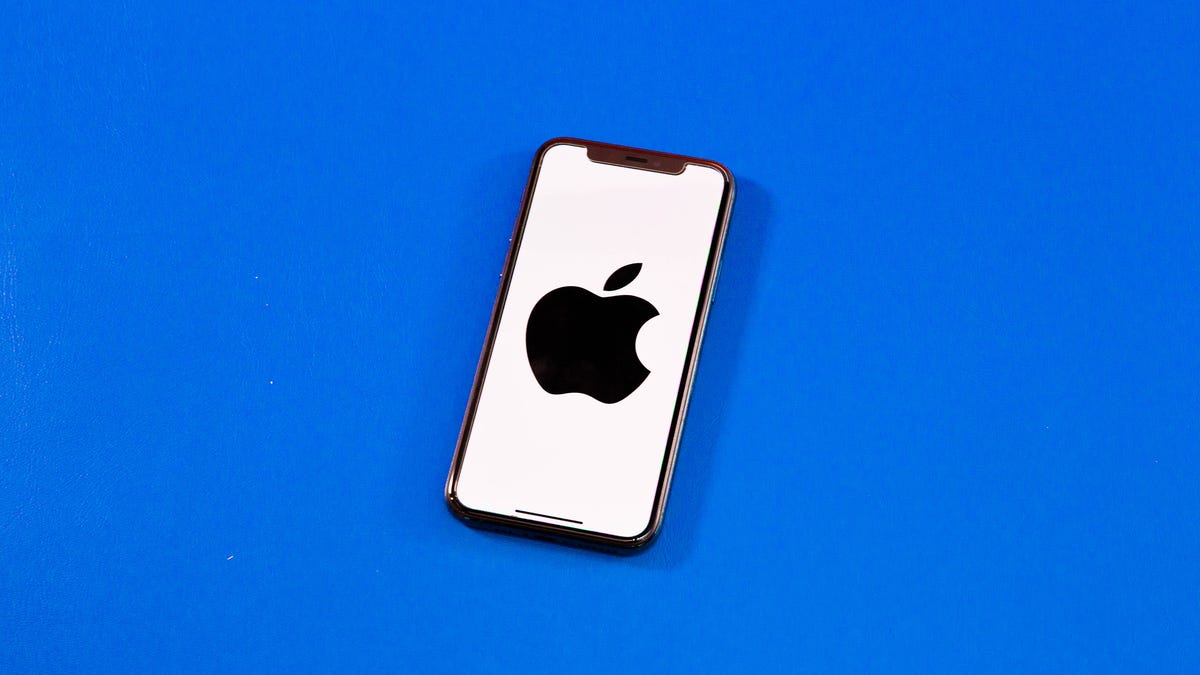Apple's iPhone Is Powering Through the Slowing Economy

What's happening
Apple said demand for its phones continues to grow, despite the uncertain economy.
Why it matters
The tech giant's comments are starkly different from Facebook parent Meta and Google parent Alphabet, which both reported surprise drops in ad sales.
What's next
Apple says it's upbeat about 5G wireless and continuing demand from people upgrading their devices.
Over the past week, many of tech's biggest names have sounded alarms about the economy. Google parent Alphabet and Facebook parent Meta have reported surprise drop-offs in online advertising spending. And Intel shocked investors with a 22% drop in sales, its biggest revenue drop in more than a decade.
Apple, meanwhile, kept chugging. The iPhone maker said its sales actually grew in the three months ended in June, despite another wave of infections from the coronavirus pandemic and the highest inflation in decades. And, CEO Tim Cook told analysts on a conference call Thursday that there "was no obvious evidence of macroeconomic impact" his company's phones over the past three months.
"When you think about the number of challenges in the quarter, we feel really good about the growth that we put up," he added.
Apple's fiscal first quarter was marked by continued demand for the company's latest smartphone, hitting almost $40.7 billion in sales, up nearly 3% from the $39.6 billion it reported last year. That's notable considering its latest iPhones largely range in price from the $699 iPhone 13 mini to $1,099 iPhone 13 Pro Max.
Its Mac computers, iPad tablets and wearables categories all saw slight drops in sales, which Apple's CFO Luca Maestri attributed at least in part to manufacturing constraints across the industry and throughout China, whose zero-tolerance policy against the COVID-19 pandemic has led to lockdowns in some of its most populated areas.
Apple's services effort, which includes its $5 per month Apple TV Plus, was the only other division that showed growth.
"It's a mixed bag in terms of what we believe that we saw," Cook said.
Apple's latest financial disclosures are just the latest sign of how the coronavirus pandemic and events halfway around the world can impact the economy in radical ways. Though many businesses struggled through the pandemic, our reliance on big tech fueled increased financial performance across the industry, until recently. Now, as the world grapples with the highest inflation in decades, retailers like Walmart have begun warning that customers are slowing purchases.
Apple's stock closed up less than 1% at $157.35 per share before the release and rose another 1% afterward. Earlier this year, investors pushed the company's shares above $3 trillion for a short period before the broader market -- including tech stocks -- began a precipitous fall amid rising energy prices and interest rates. It's currently valued at about $2.5 trillion.
Tale of two tech economies
Apple's results, and the tenor of its earnings release, were markedly different from Google and Facebook, both of whose businesses are largely built on delivering advertisements. Microsoft also reported slowed advertising growth.
"We seem to have entered an economic downturn that will have a broad impact on the digital advertising business," Facebook parent Meta CEO Mark Zuckerberg said in a call with analysts Wednesday. "It's always hard to predict how deep or how long these cycles will be, but I'd say that the situation seems worse than it did a quarter ago."
Amazon, meanwhile, said it saw no slowdown in consumer demand, with sales rising 7% to $121.2 billion in the three months ended in June. That beat analyst expectations of $119.1 billion and didn't even include its annual Prime Day shopping event, which occurred earlier this month. Samsung as well announced rising profit and sales, driven by continued strong sales of chips it manufactures.
For its part, Apple said it notched profits of $19.4 billion, down 10% from the same last year. That translates to $1.20 per share in profit, off nearly $83 billion in overall revenue, which itself was up nearly 2% from the $81.4 billion reported last year. It was also enough to beat average analyst estimates, which were $1.16 per share in profits on $82.8 billion in revenue, according to surveys published by Yahoo Finance.
Sales in the Americas reached nearly $37.5 billion, up more than 4%. In Europe, revenue rose slightly to $19.2 billion, up from $18.9 billion. The company said revenue dropped in Greater China, in part because of COVID lockdowns, pushing sales down 1% to $14.6 billion.
Another bright spot for investors was Apple's outlook, which suggested the next-generation iPhone will arrive on schedule before the end of September (the iPhone 13 was released Sept. 24 last year). Apple said it expects year-over-year sales growth will "accelerate" when compared with its just-reported June quarter. And, supply constraints are expected to be lower as well.
Cook stopped short of guaranteeing an iPhone 14 was on the way, which is typical as the company rarely tips its hands about the future during a quarterly earnings release. But he did say he's hopeful about continued demand, in part because people are still upgrading to 5G wireless technology.
"5G has been an accelerant," he said, adding that while the technology is spreading through some places, like China, the EU and US, other parts of the world haven't begun using it as much. And so as 5G expands, he said, "I think there's reason to be optimistic."

